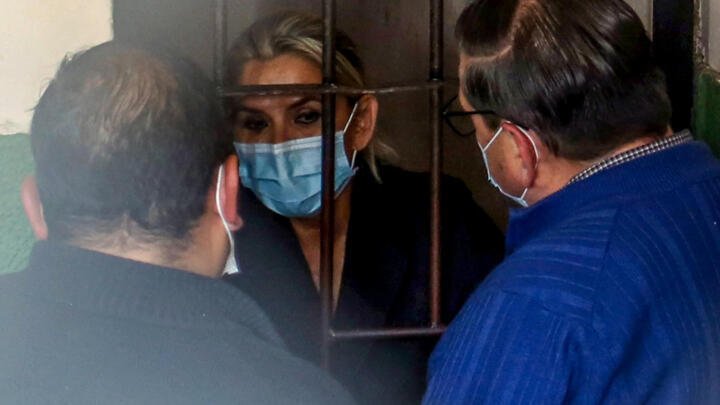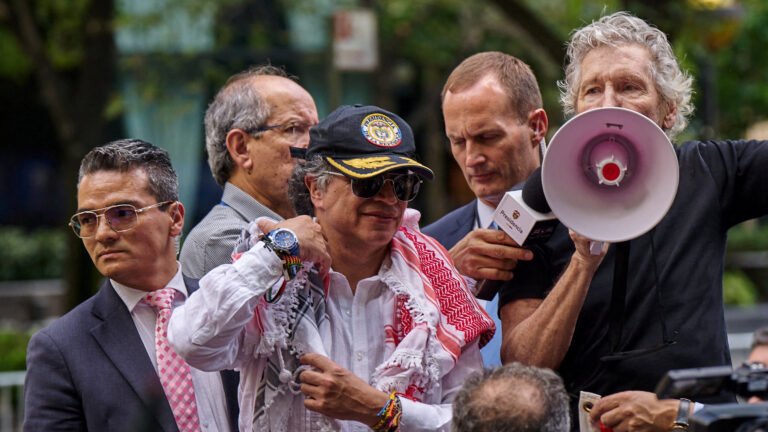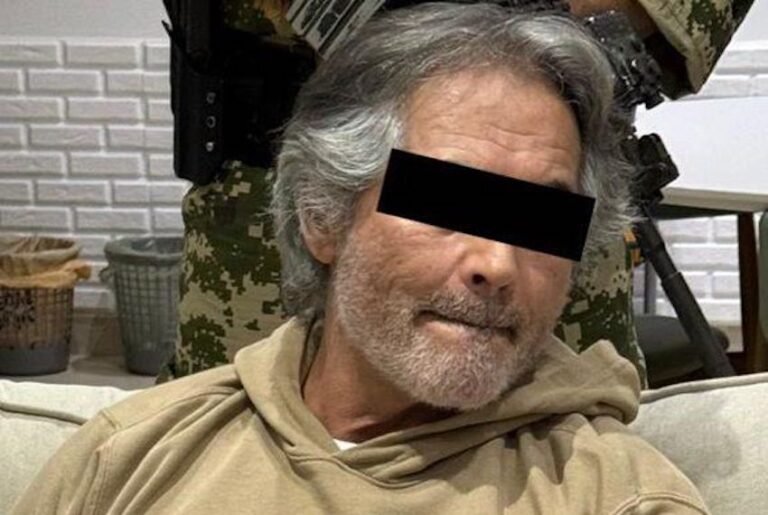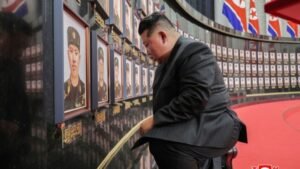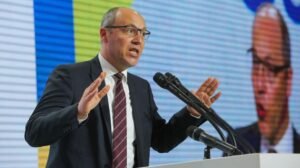A Bolivian court on Saturday overturned another ordinary trial against former Bolivian interim president Jeanine Áñez for the deaths of civilians during the 2019 crisis in the town of Sacaba, in the center of the country, and ordered that the case be prosecuted in a trial of responsibilities.
In a virtual hearing that began on Friday and lasted for 16 hours, the Criminal Sentence Court of Anti-Corruption No. 1 of Sacaba, in the central region of Cochabamba, declared itself “incompetent” to carry out the case “Sacaba” and ordered the nullity of the work done, according to a video broadcast on the social networks of Áñez.
The court decided to refer the case’s history to the Supreme Court of Justice (TSJ) and the Attorney General’s Office – in compliance with the provisions of Act No. 044 for the trial under the jurisdiction of privilege – for Áñez and 17 other accused, which means that a responsibilities trial must now be processed.
It also ordered that “demands of freedom” be issued for those who are being held pre-trially in this case, including the former interim president.
“Justice has finally acted in law,” wrote Áñez, who, however, must remain in prison because he has a 10-year prison sentence handed down in 2022 for another trial, the so-called coup case II, for which he was accused of being placed illegally in the line of succession in 2019.
Áñez’s daughter, Carolina Ribera, explained to some media that an appeal for extraordinary review of the sentence was filed and they are waiting for a response from the TSJ in this regard, which, if favorable, will allow the policy, who has been in prison since March 2021, to be freed in all the proceedings against them.
On Monday, another court also annulled an ordinary trial against Áñez and called for the commencement of a trial of responsibilities against the former president in the so-called Senkata case for the deaths of civilians during the 2019 crisis in that area of the city of El Alto, a neighbor of La Paz.
That court also ordered a “demand of freedom” for Áñez, asking him to wait for the trial outside of prison, although for this, there are a series of procedures and legal steps that must be complied with in advance.
The TSJ ordered last week to review compliance with the deadlines for preventive detentions in all trials against Áñez and opposition leaders Luis Fernando Camacho and Marco Pumari, the main ones investigated for the 2019 crisis.
The processes for the events of 2019 are carried out at the request of the government of Luis Arce and the ruling Movement for Socialism (MAS), which claim that there was a coup d’état against Evo Morales (2006-2019), which their detractors deny that the protests were for a fraud in favor of the then president in the failed elections of that year.
On Friday, Camacho, the governor of the eastern region of Santa Cruz, and Pumari were released after, in recent days, the justice system withdrew the measure of pretrial detention in four trials to the first and in two to the second, including the so-called coup case of the State strike, for their roles in the 2019 crisis.
Áñez was removed from this trial because shhadas already been tried and sentenced for the same facts in the case of the coup d’état II.
Politics has always called for a special process as a former president, and in 2023 denounced the Bolivian State to the Inter-American Commission on Human Rights (IACHR) for denying him a judgment of responsibilities.
Bolivian legislation reserves the trial of responsibilities to senior State executives such as presidents, vice presidents, judges of the high courts, among others, but the Government of Arce and the MAS have always denied the status of former president Áñez.




